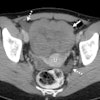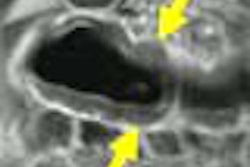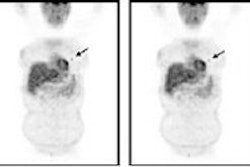Will radiologists and gastroenterologists ever see eye to eye on virtual colonoscopy? Discourse between the two specialties hasn't always been positive. And while gastroenterologists have questioned the accuracy of the virtual exam, radiologists often note that the worst virtual colonoscopy results can be found in gastroenterologist-led studies.
Dear AuntMinnie Insider,
Will radiologists and gastroenterologists ever see eye to eye on virtual colonoscopy? Discourse between the two specialties hasn't always been positive. While gastroenterologists have often questioned the accuracy of the virtual exam, radiologists note that the worst virtual colonoscopy results can be found in gastroenterologist-led studies.
Hovering just below the surface are issues of economics, and at the smoldering core, a kind of competition over whose exam can better satisfy the growing need for colorectal cancer screening.
But with more than 76 million Americans now over 50 years of age (the number will double over the next two decades, according to the U.S. Census Bureau), radiologists and gastroenterologists are increasingly coming to agree that the answer lies in both screening tests -- and indeed, in any other reasonably accurate exam that might improve compliance rates and stem the tide of cancer's second biggest killer.
At the 2003 International Symposium on Virtual Colonoscopy, Dr. John Bond, chief of gastroenterology at the VA Medical Center in Minneapolis, looked at virtual colonoscopy and its place in colorectal cancer screening. He concluded that gastroenterology can't begin to handle the burgeoning screening needs of the over-50 set, and that VC will be a critical addition to the fight against colon cancer mortality, especially if it can improve the currently dismal screening compliance rates. You'll find the rest of Bond's comments in this issue's Insider Exclusive.
Also, in today's Virtual Colonoscopy Digital Community, we're featuring an article on researchers from Italy who are using dark-lumen MR colonography to assess inflammatory bowel disease in children. The virtual MR exam is well accepted by patients, free of ionizing radiation, and offers benefits that optical colonoscopy simply cannot provide, according to Dr. Pasquale Paolantonio and colleagues from the University of Rome "La Sapienza."




















